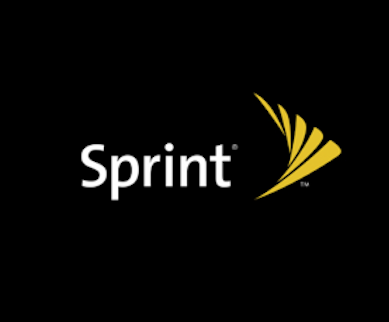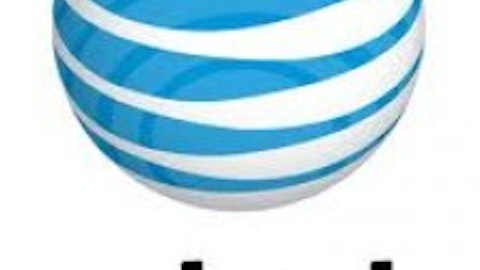
A large influx of short-sellers shouldn’t be a condemning factor to any company, but it could be a red flag from traders that something may not be as cut-and-dried as it appears. Let’s look at three companies that have seen a rapid increase in the amount of shares sold short and see whether traders are blowing smoke, or if their worry has some merit.
| Company | Short Increase Dec. 31 to Jan. 15 | Short Shares as a % of Float |
|---|---|---|
| UnitedHealth Group Inc. (NYSE:UNH) | 89.9% | 1.2% |
| Plains All American (NYSE:PAA) | 49.4% | 0.7% |
| Sprint Nextel Corporation (NYSE:S) | 35.8% | 1.8% |
Source: The Wall Street Journal.
Turn that frown upside down
The Centers for Medicare and Medicaid Services is forecasting that annual health care expenditures will rise from $2.8 trillion in 2012 to $4.8 trillion in 2021. Keeping that in mind, I’ll give you three guesses how I feel about health-benefits provider UnitedHealth Group — and the first two guesses don’t count!
In UnitedHealth’s most recent quarter, it recorded an 11% increase in net revenue, but saw medical costs climb 12% and operating costs rise a disappointing 13%. Before you go sounding the pessimist horn, keep in mind that UnitedHealth’s higher operating costs were from a move to bring a pharmacy-benefits business in-house, and because of new contract costs associated with its expansion in Tricare, a health-benefits program for military members and their families. The company also bought a majority stake in Amil Participacoes, one of Brazil’s largest health-benefits providers, for $4.9 billion in October.
What we have here is a health-benefits company that’s branching out overseas, and that’s also working its way into pharmacy-benefits management and other aspects of information technology.
The expected influx of members under the Medicaid expansion pushed UnitedHealth’s peer WellPoint, Inc. (NYSE:WLP) , which was the most exposed to small businesses of all health-benefits providers, to purchase Amerigroup for $4.46 billion in order to get its piece of the government-sponsored pie. UnitedHealth, because of its diversified operations both domestically and abroad, has the ability to keep costs under control to a better extent than many of its peers — even WellPoint. With that said, no, I don’t think it’d be prudent to bet against UnitedHealth Group here.
Let the good times flow
Whether it’s a boom in liquid natural gas, oil, or natural gas, midstream pipeline and storage companies offer some of the safest plays in the energy sector. You’ll be hard pressed to find any that trade cheaply given the fact that President Obama’s plan to beef up the U.S.’ energy independence will require massive amounts of new investments in pipelines, storage, and other modes of transportation. That’s why, even with Plains All American looking a little pricey at the moment, it may not be the smartest idea to bet against the company.
As the Fool’s energy maven Aimee Duffy has pointed out on numerous occasions, Plains’ acquisitions are what put this midstream company in such phenomenal shape. As Aimee notes, Plains recently announced its intentions to purchase a total of five crude oil rail terminals in the East, West, and Gulf Coasts for $500 million based on the premise that the oil-by-rail trend is only going to grow. With the ability to bypass Cushing, Okla., drillers can choose to ship their oil by rail to a Plains All American terminal, pay the shipping fee, and still come out further ahead in the Gulf where they’ll receive Brent crude pricing than if they sold cheaper either at the wellhead or in Cushing. This is a big trend for oil assets in the Bakken shale region and is likely to spread to other regions of the country.
I still can’t hear you
SoftBank may have taken the wind out of pessimists’ sails with its $20 billion investment in Sprint Nextel, giving it a controlling 70% stake; however, it forgot one key point: that it just purchased a stake in Sprint Nextel.
There’s a reason that Sprint Nextel has been left in the dust by peers AT&T Inc. (NYSE:T) and Verizon Wireless (co-owned by Verizon Communications Inc. (NYSE:VZ) and Vodafone Group Plc (ADR) (NASDAQ:VOD)): a lack of 4G LTE infrastructure. According to Verizon Wireless’ coverage map (I know, bias alert), it boasts 476 cities that are covered by its 4G LTE compared to just 125 for AT&T as noted by C-Net in mid-December. As for Sprint, it offers 4G LTE service in just 49 cities. Game-set-match!
Another big problem with Sprint is that it’s never had enough capital, or the right partner, to expand its 4G LTE network until now. One of Sprint’s biggest financial black holes has been Clearwire Corporation (NASDAQ:CLWR) , which, other than its amazing spectrum assets, has burned a hole in Sprint’s pocketbook. Clearwire’s WiMax technology was passed over by Sprint for 4G LTE and, even after funneling Clearwire more than $1.5 billion in lifelines, Sprint still tried to look elsewhere (a la LightSquared) for an LTE build-out partner. Instead, Sprint actually agreed to purchase Clearwire, a company that burned through $9.3 billion in free cash between 2007 and 2011, for $2.2 billion. DISH Network Corp. (NASDAQ:DISH) currently has a competing and superior bid for Clearwire, but Sprint may ultimately land this cash-burning machine. That’s more than enough reason to avoid Sprint, in my opinion.
Foolish roundup
This week’s theme is all about bigger trends than just the companies examined. A large influx of newly insured patients and a large midstream build-out bode well for UnitedHealth Group and Plain All American. Conversely, Verizon’s 4G LTE dominance and AT&T’s superior cash flow continue to put Sprint at a clear disadvantage.
What’s your take on these three stocks? Do the short-sellers have these stocks pegged, or are they blowing smoke? Share your thoughts in the comments section below.
The article Shorts Are Piling Into These Stocks. Should You Be Worried? originally appeared on Fool.com and is written by Sean Williams.
Fool contributor Sean Williams has no material interest in any companies mentioned in this article. You can follow him on CAPS under the screen name TMFUltraLong, track every pick he makes under the screen name TrackUltraLong, and check him out on Twitter, where he goes by the handle @TMFUltraLong.The Motley Fool owns shares of WellPoint. Motley Fool newsletter services have recommended buying shares of UnitedHealth Group, WellPoint, and Vodafone Group, as well as creating a diagonal call position in UnitedHealth Group.
Copyright © 1995 – 2013 The Motley Fool, LLC. All rights reserved. The Motley Fool has a disclosure policy.



